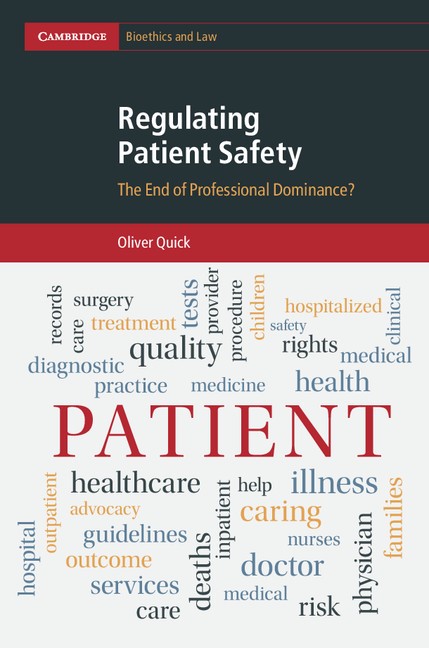In his book Dr Oliver Quick looks at areas of health law that receive too little attention, such as health and safety law, criminal law and coronial law. His research examines systematic challenges for patient safety from professional, regulatory, and legal perspectives, and argues for a patient-centred rather than professional-dominated approach to regulation and professionalism.
Writing for the Medical Law Review, the leading specialist law journal in this area, Catherine Bowden, published a very favourable critique of Dr Quick’s work last week. She writes:
"At a time when we are told that we have had enough of experts, a vision of healthcare regulation that signals the potential end of professional dominance might seem fitting. However, far from partaking in the trashing of experts, Oliver Quick offers a vision of regulation which has the potential to protect patients and professionals alike."
The book is praised for an evidence-led thesis which provides practical recommendations “that can be welcomed by all those involved in healthcare.” Dr Quick’s work advances academic debates and offers solutions to one of the greatest challenges for the NHS and other health systems around the world. The review concludes:
"What makes Quick’s argument particularly persuasive (and perhaps more palatable for those invited to change) is that instead of merely criticising the status quo, he takes a historical perspective and demonstrates that the concept of what it means to be a good medical professional is a fluid one and adapts to the changing nature of society…
[S]hifting the focus of regulation away from medical error towards patient safety represents an opportunity for the medical profession to strengthen its status by putting that status on a surer foundation – informed trust, ethical principles, and ultimately, the provision of safer care. It will, therefore, be of interest to those concerned with the role of law in healthcare, the concept of the modern medical professional, the doctor-patient relationship and the role of patients and their families in healthcare.
This book makes a significant and timely contribution to the study of medical law, and I recommend it to academics and policymakers alike."
